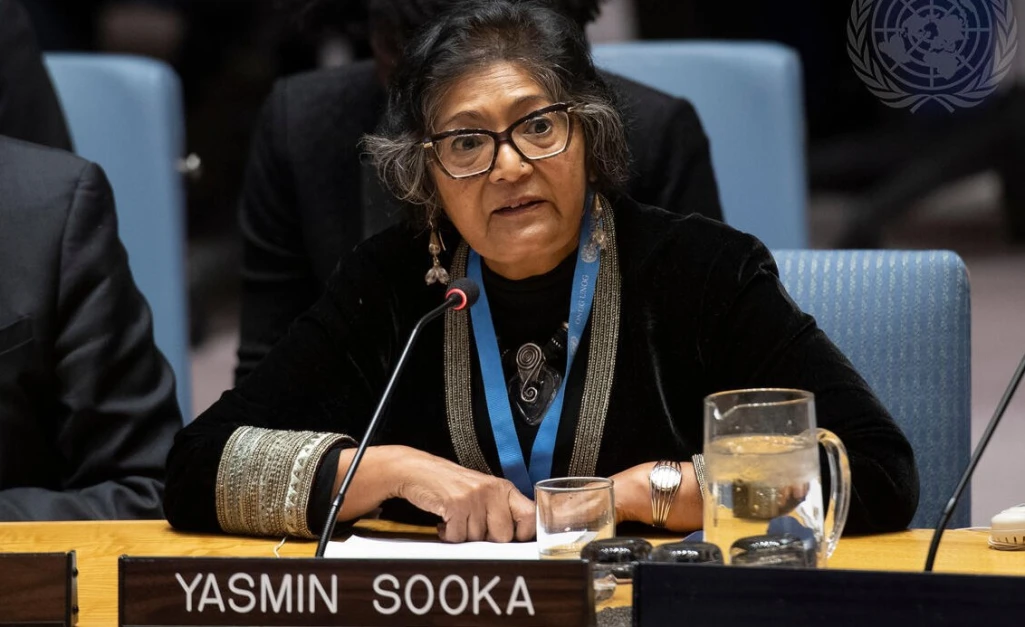
The United Nations Commission on Human Rights in South Sudan has called on the African Union to urgently facilitate the establishment of transitional justice institutions in South Sudan.
It particularly called for the immediate formation of a hybrid court for South Sudan.
The court was one of the mechanisms proposed in the peace agreement to address abuses committed during more the 2013, 2016 conflicts in South Sudan. It is to be established together with the Commission for Truth, Healing and Reconciliation, and the Compensation and Reparations Authority.
Last year, the government of South Sudan approved the establishment of the accountability mechanisms, including the special court in partnership with the African Union (AU).
Expert believe the court could bring justice closer to victims and survivors who have suffered brutal crimes with impunity for far too long.
However, up to date, the court has not been established.
In a statement on Wednesday, the UN Commission on Human Rights in South Sudan asked the AU to take swift and concrete action to operationalize the mechanism in support of the government of South Sudan.
“South Sudan’s peace process cannot implement itself; the people of South Sudan whose lives depend on it, want to see more energy expended on breathing life into this document. We urgently need the African Union to take the next steps necessary to set up the Hybrid Court for South Sudan, and support the Truth Commission and the other processes that will give the men with guns serious pause for thought,” Yasmin Sooka Chair of the UN Commission said after a meeting at the AU headquarters in Addis Ababa, Ethiopia.
Chapter 5 of the 2018 revitalized peace agreement emphasized that – a part from enable justice, the transitional justice mechanisms are to also promote the common objective of facilitating truth, reconciliation and healing, compensation and reparation in South Sudan.
Reverend James Ninrew, Chairperson of the Transitional Justice Working Group recently said some people think the “court are designed to target particular people and take them for justice… and to some, it is just a group of opposition who are trying to overthrow the government, which is not really the case.”
He added that their work has been frustrated by a lack of cooperation from some government institutions.
It maintained that the violence characterized by cattle raiding, abductions, revenge killings, and continuous fighting between armed groups could be tamed by enacting bodies charged with transitional justice as per the 2018 revitalized peace deal.
The Commission reiterated their call in the Wednesday’s statement.
“At present South Sudan is a haven for those who commit the most atrocious violence. As a result, nearly 9 million South Sudanese still need humanitarian assistance to survive. That’s a staggering three quarters of the population. People are being killed, maimed, raped and made homeless and we know from other countries that a credible truth and justice process is the only way to stop this.” Commissioner Barney underscored.
The Commission told the Africa Union (AU) leadership, Departments and Member States, the Inter-Governmental Authority on Development (IGAD), diplomatic corps and UN representatives, civil society and other actors in Addis Ababa that the parties to the agreement consistently failed – without a credible justification – to meet deadlines set for critical reforms and the establishment of the transitional justice bodies.
In August this year, the peace parties extended the time frame of the peace agreement to 2025.
“Every new extension of the timelines for implementation of the peace agreement, and indeed every passing day of inaction, means not just time lost, but lives lost,” Commissioner Barney Afako said.
She added:
“Every month we see thousands of South Sudanese cross borders, stream into the UN-run protection site or move around the country trying to dodge an ever-shifting mosaic of violence that hardly registers regionally or internationally.”
The Commissioned maintained that without establishing transitional justice mechanism, millions of South Sudanese will likely continue to be displaced or seek refuge cross the borders – creating havoc for neighbouring countries and aid agencies.
“Aid agencies struggle even to raise enough money to feed the victims because South Sudan has become invisible in the wake of other crises around the world,” it concluded.
The UN Commission on Human Rights in South Sudan urges the government of South Sudan to take the lead in making “available interim reparations to survivors whose lives are shattered.”